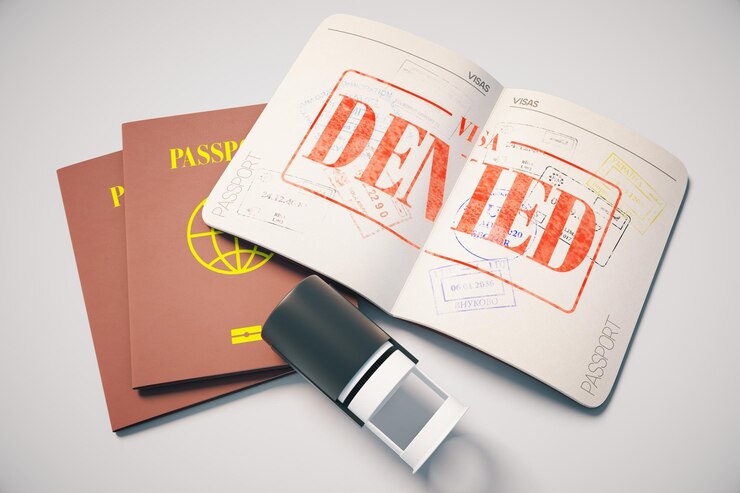A visa application refusal can be a significant hurdle in your travel or relocation plans. Whether it’s for tourism, study, work, or migration, a refusal brings with it disappointment and confusion. However, it’s important to know that a refusal is not the end of the road. This comprehensive guide aims to provide you with detailed insights and actionable steps on what to do if your visa application is refused, helping you to navigate this challenging situation effectively.
Understanding Visa Refusal
Visa applications are scrutinized rigorously, and refusals can occur for a variety of reasons. Common causes for refusal include incomplete applications, insufficient financial resources, doubts about the applicant’s intention to return home, or failure to meet eligibility criteria. Understanding the specific reasons for your visa refusal is crucial for deciding your next steps.
Receiving the Refusal Notification
The first step after a visa refusal is to carefully read the refusal notification you receive. This document will explain the reasons for the refusal and is key to determining your course of action. Pay attention to every detail mentioned in the notification, as it will guide you in rectifying the issues in your application.
What to Do After a Visa Refusal
- Analyze the Refusal Letter: Understand the specific reasons for the refusal. This could range from documentation errors to more complex issues like doubts about your travel intent.
- Gather Additional Information or Documentation: Based on the reasons for refusal, prepare additional documents or information that may strengthen your case.
- Consider Reapplying: If the reasons for refusal can be addressed, you may choose to reapply for the visa. Ensure that your new application resolves the issues identified in your refusal.
- File an Appeal: If you believe the refusal decision was incorrect and you have substantial evidence to support your claim, consider filing an appeal. This is a formal process and may require you to submit additional documentation and a detailed letter of appeal.
- Seek Professional Advice: Immigration lawyers or visa consultants can offer valuable advice. They can help you understand the refusal reasons, improve your application, or guide you through the appeal process.
Reapplying After a Refusal
If you decide to reapply, here are some tips to enhance your chances of success:
- Address the Refusal Reasons: Make sure your new application directly addresses the reasons mentioned in the refusal letter.
- Complete and Accurate Application: Double-check your application for accuracy and completeness.
- Submit Relevant Documentation: Provide all necessary documents that support your application and rectify previous shortcomings.
- Write a Cover Letter: Include a cover letter that explains how you have addressed the previous refusal reasons.
The Appeal Process
If you have valid reasons to believe that your application was unjustly refused, filing an appeal is a suitable option.
The appeal process typically involves:
- Preparing a Strong Appeal: Include a detailed explanation addressing each refusal reason and provide supporting evidence.
- Following Specific Guidelines: Each country has its own appeal process. Follow the guidelines provided in your refusal letter.
- Waiting for the Decision: Be prepared for a waiting period as appeals can take time to process.
Managing Expectations
It’s important to manage your expectations when dealing with a visa refusal. Reapplication or appeal does not guarantee a visa grant, but addressing the refusal reasons effectively increases your chances.
Dealing with a visa application refusal requires a strategic approach. Whether you choose to reapply or appeal, ensure that you have addressed all the concerns raised in the refusal notification. Patience and attention to detail are crucial in this process.Remember, a visa refusal does not mean the end of your journey; you can overcome this obstacle with the right approach.
FAQs
How long should I wait before reapplying for a visa?
You can reapply anytime, but ensure you have addressed the refusal reasons before submitting a new application.
Will a visa refusal affect my future applications?
A refusal can be part of your record, but addressing the reasons effectively in subsequent applications can help mitigate its impact.
Is it worth appealing a visa refusal?
An appeal is worth considering if you have strong evidence that contradicts the refusal reasons.
Can I apply for a different type of visa after a refusal?
Yes, you can apply for a different type of visa if it aligns with your purpose of travel and meets the criteria.
Should I consult a visa expert after a refusal?
Consulting a visa expert can provide clarity and guidance, potentially increasing your chances of a successful application.
Do you need support with your visa application?
Contact our team of skilled immigration lawyers to discuss your visa and immigration needs.
Call us on +234 812 5505 986 or WhatsApp us at +234 818 1547 085 for immediate assistance with your situation. We are available to assist you in person, over the phone, or online.

